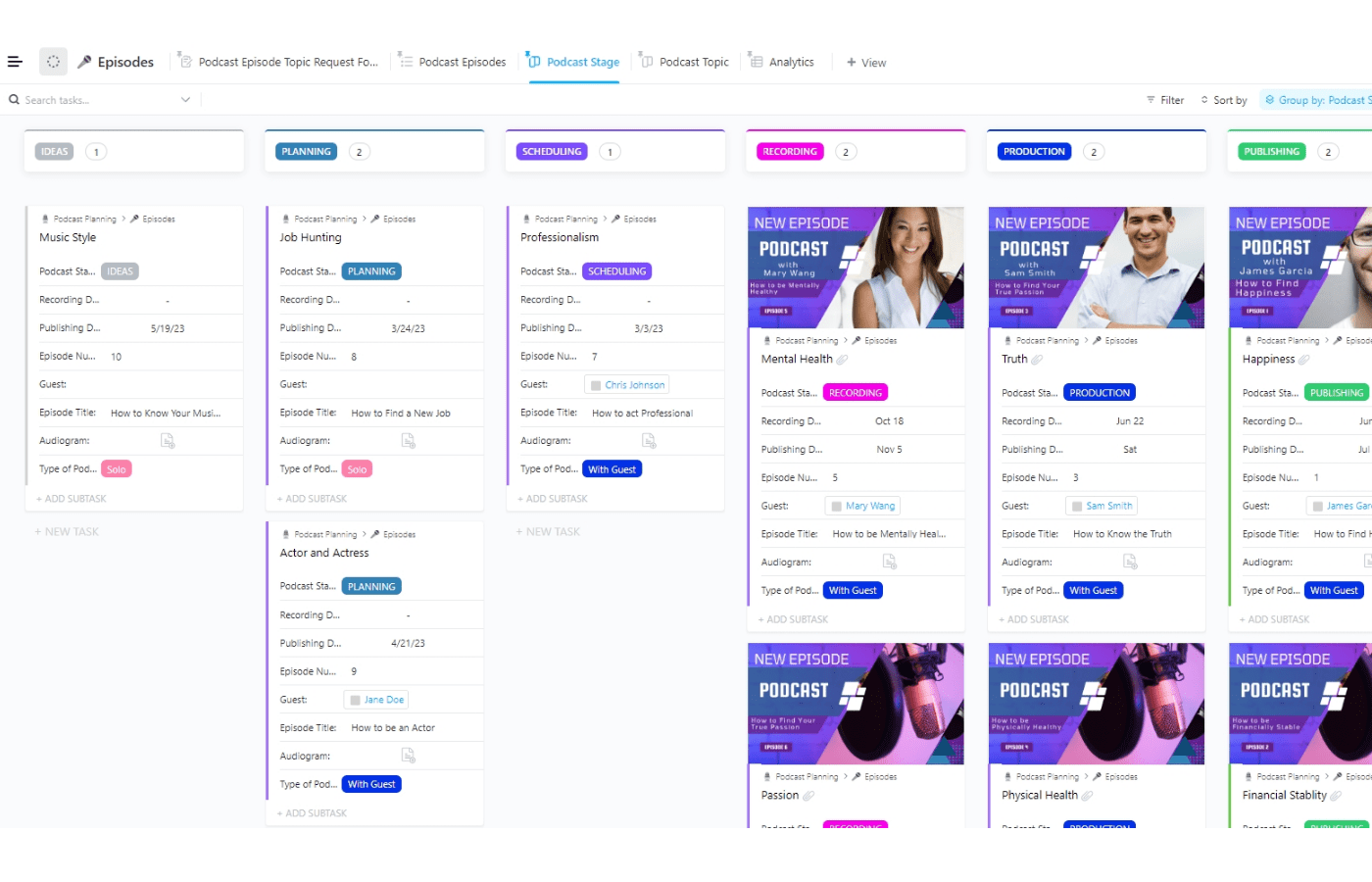Key takeaways
When deciding between a TPM vs PM, understanding their key differences is essential.
While both roles oversee project scope, timelines, and budgets, technical project managers or TPMs have specialized technical expertise, making them better suited for IT and engineering projects.
Project managers or PMs, on the other hand, are versatile across various industries, focusing more on business outcomes without diving into technical specifics.
What is a Project Manager (PM)?
A project manager is the key figure responsible for guiding a project from its initial stages through to completion. They ensure that the project stays on time, within budget, and aligned with company objectives.
PMs lead by planning, organizing, and directing teams while managing resources to deliver the desired outcome.
Core responsibilities
- Defining scope: A PM determines the project’s goals and deliverables, ensuring they meet stakeholder expectations.
- Budget and resource management: They manage project budgets and allocate resources efficiently to avoid overages and delays.
- Team coordination: PMs serve as the communication hub between departments, ensuring that everyone is aligned.
- Risk management: They identify potential risks early on and put mitigation strategies in place to prevent project derailment.
- Project execution: PMs track progress and make adjustments to keep the project moving toward its goals.
Skills and qualifications
- Leadership: PMs motivate teams to stay productive and focused on the objectives.
- Organization: Managing multiple project elements simultaneously requires high organizational ability.
- Communication: PMs need to facilitate clear communication between stakeholders and teams.
- Problem-solving: Challenges and conflicts are inevitable, and PMs must resolve issues swiftly to keep the project on track.
- Proficiency in project management software: Familiarity with tools like Jira, Asana, and Trello helps PMs monitor progress and collaborate efficiently.
PMs play a pivotal role in ensuring that projects meet their deadlines, stay within budget, and fulfill client or stakeholder expectations. They work across various industries, making their role adaptable to almost any business.
Without effective project management, companies risk running over budget, missing deadlines, and losing competitive advantage.
This role is often compared to that of a technical project manager (TPM), especially in IT-heavy industries, but the general PM role is broader and does not necessarily require in-depth technical knowledge.
PMs often collaborate with technical project managers to integrate technical solutions into the overall business strategy.
This distinction becomes especially important in IT-centric projects, where the skill set of a technical project manager is better suited.
What is a Technical Project Manager (TPM)?
A technical project manager (TPM) combines traditional project management responsibilities with a deep understanding of technical systems.
While general project managers focus on overall project delivery, TPMs are more specialized, especially in industries like IT, software development, and engineering.
They have the expertise to bridge the gap between technical teams and business stakeholders, ensuring that both understand each other’s needs and that technical goals align with broader business objectives.
Core responsibilities
- Technical oversight: TPMs ensure that the technical aspects of a project are executed correctly and efficiently, overseeing system architecture, software development, or IT infrastructure.
- Collaboration with engineering teams: TPMs often work closely with developers and IT staff to ensure technical feasibility and the smooth integration of systems or applications.
- Project planning: Like general PMs, TPMs manage timelines, resources, and budgets — but with an emphasis on technical challenges and requirements.
- Risk assessment and mitigation: In addition to managing general project risks, TPMs must anticipate technical hurdles, such as system failures, data breaches, or software bugs, and develop contingency plans.
Skills and qualifications
- Technical expertise: TPMs must have a solid background in IT systems, software engineering, or another technical field to communicate effectively with technical teams.
- Problem-solving: They must be able to troubleshoot technical issues while managing project constraints.
- Communication: TPMs act as liaisons between technical staff and non-technical stakeholders, ensuring both groups remain aligned throughout the project lifecycle.
- Leadership and project management: TPMs need strong organizational and leadership skills to guide both the technical team and the overall project.
Technical project managers are essential when projects involve complex technical components. They ensure that technical teams stay focused on project goals while solving intricate problems that could derail progress.
Companies in IT-centric industries rely on TPMs to manage the technical aspects while still delivering a project on time and within budget.
In comparison to an IT project manager, a TPM may oversee both IT and non-IT components, whereas an IT project manager focuses exclusively on IT-related projects.
TPM vs PM: Overlap and Differences
When comparing TPM vs PM roles, the most significant distinction is the technical depth involved.
A technical project manager vs project manager analysis shows that while both oversee project scope, timelines, and budgets, TPMs are more immersed in the technical execution.
Goals
- PMs focus on broader business outcomes, ensuring that the project meets business goals, client expectations, and company standards. They act as a bridge between stakeholders, ensuring all requirements are met while managing resources and scope.
- TPMs concentrate on how technical solutions meet business and project goals. They ensure the technical architecture, software, or infrastructure aligns with the broader strategy. TPMs are essential for projects where technical feasibility is key to success.
Day-to-day tasks
- PMs primarily manage relationships and communication between departments, ensuring deadlines are met and the team stays aligned. Their daily tasks often include meetings with stakeholders, status reporting, risk management, and making strategic decisions to keep the project on track.
- TPMs take a more hands-on approach with technical teams. Their day-to-day involves collaborating with engineers, solving technical roadblocks, and ensuring the technical aspect of the project stays on schedule. They must also communicate technical challenges in a way that non-technical stakeholders understand, helping both sides stay informed.
Skill sets
- PMs require strong leadership, organizational skills, and the ability to manage diverse teams. Their success depends on clear communication, team motivation, and maintaining project momentum.
- TPMs, on the other hand, must combine traditional project management expertise with technical knowledge. They often need a background in IT, software development, or engineering to fully understand and support their teams in delivering the technical aspects of a project.
In many IT-driven projects, a technical project manager is better suited due to their ability to navigate complex technical landscapes while still managing the overall project delivery.
In contrast, a project manager is ideal for projects that don’t require in-depth technical expertise, as they focus more on business objectives and broader project goals.
Career Path and Salary Comparison
When comparing the career paths of a technical project manager vs project manager, it’s clear that technical roles generally offer higher pay and more growth in IT-centric industries.
- IT project manager salaries
- Low: $67,334
- Average: $99,117
- High: $145,902
(Source: Indeed)
- Project manager salaries:
- Low: $57,039
- Average: $89,665
- High: $140,955
(Source: Indeed)
READ MORE: Complete 2024 Project Manager Salary Guide
Career path for IT project managers
IT project managers typically begin with technical expertise in fields like software development, IT infrastructure, or systems architecture. Over time, they move into project management by gaining certifications like PMP or PRINCE2 and transitioning to leadership roles.
As technology continues to evolve, the demand for IT project managers remains strong, with growth opportunities leading to positions like program manager, IT director, or even chief technology officer (CTO).
Career path for general project managers
Project managers often come from a variety of backgrounds — construction, marketing, finance — since their skills are more broadly applicable across industries.
The career path of a project manager usually begins with them as project coordinators or in similar support roles, progressing to full project management responsibilities after completing certifications or acquiring enough experience.
With strong performance, PMs can advance to program manager, operations manager, or even VP of project management, depending on the company and industry.
Both project management and technical project management offer the opportunity to grow into higher-level positions, but TPMs have the advantage in tech-related industries due to their technical expertise, which is increasingly in demand as businesses adopt more complex systems.
Difference Between Program Manager and Project Manager
Though both roles share similarities, the difference between a program manager and a project manager is primarily in scope.
- Project managers focus on specific, finite projects with clear timelines, deliverables, and goals. They are responsible for managing teams, budgets, and project risks to ensure successful completion.
- Program managers, however, oversee multiple related projects simultaneously, ensuring that these projects align with broader business objectives. Their role is more strategic, focusing on long-term goals, resource allocation across projects, and interdependencies between projects.
In essence, PMs are execution-focused, while program managers take on a more strategic, big-picture role.
When to Choose a TPM or a PM
Choosing between a project manager vs technical project manager depends on the specific needs of the project.
- Project manager (PM): PMs are responsible for managing project scope, timelines, and resources for a wide range of industries. They focus on business outcomes and don’t need deep technical knowledge. This makes them ideal for projects that are more operational or strategic rather than technical.
- Technical project manager (TPM): A TPM is more specialized, overseeing projects that involve technical complexity, such as IT infrastructure, software development, or systems integration. Their ability to communicate with engineers and navigate technical challenges makes them crucial for tech-heavy projects.
In a TPM vs PM comparison, the main difference is that while both manage scope and timelines, the TPM has a deep technical understanding, making them essential for IT-centric projects.
READ MORE: 100+ Important Project Management Terms & Concepts to Know
For businesses dealing with technology-heavy projects, having a TPM ensures smoother execution of technical details while still delivering overall project goals.
FAQs
TPM vs PM: The Bottom Line
When comparing TPM vs PM, the main distinction lies in the technical expertise required for a technical project manager versus the broader project management scope of a general project manager.
TPMs handle IT-intensive projects, bridging technical and business requirements, while PMs are suited for managing a wide range of projects across various industries.
Both roles are essential, but the right choice depends on the complexity and nature of the project.





